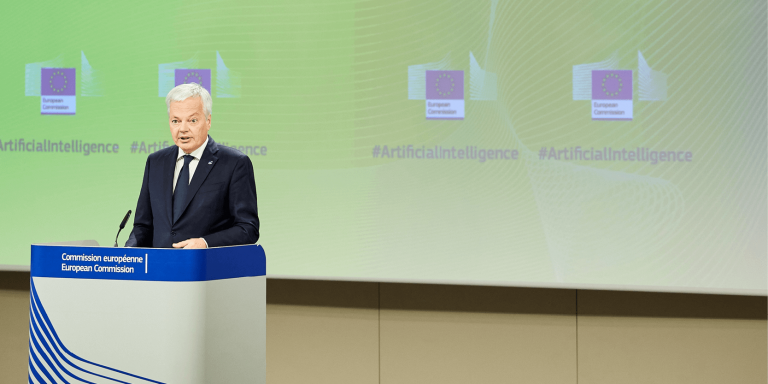
The current EU product liability rules, based on strict liability of manufacturers, are almost 40 years old. Adapting these rules to digital transformation, new technologies such as AI, the circular economy and the impact of global value chains is necessary. To this end, the European Commission adopted two proposals on September 28, one to modernize existing rules, the other to harmonize national liability rules applicable to AI.
The revised rules will provide businesses with more legal certainty, which will encourage them to invest in new and innovative products and ensure that consumers can get fair compensation when defective products, including digital and refurbished products, cause harm.
Revision of the product liability directive
The proposed revision aims to modernise and strengthen the current rules, adopted in 1985, based on the strict liability of manufacturers, for compensation for personal injury, damage to property or loss of data caused by dangerous products, from garden chairs to high-tech machinery. It ensures fair and predictable rules for both businesses and consumers:
– modernizing liability rules for circular economy business models, so that liability rules are clear and fair for companies that substantially modify products;
– by modernizing liability rules for products in the digital age, allowing for redress when products such as robots, drones, or smart home systems are rendered unsafe by software updates, AI, or digital services necessary for the product to function, as well as when manufacturers fail to remedy cybersecurity vulnerabilities;
– creating a more level playing field between EU and non-EU manufacturers: when consumers are harmed by unsafe products imported from non-EU countries, they will be able to turn to the importer or the manufacturer’s representative in the EU for redress;
– putting consumers on an equal footing with manufacturers by requiring the latter to disclose evidence, introducing greater flexibility regarding time restrictions on bringing claims for redress and easing the burden of proof for victims in complex cases, such as those involving pharmaceuticals or AI.
Thierry Breton, Internal Market Commissioner, said:
“The Product Liability Directive has been one of the cornerstones of the internal market for almost forty years. With today’s proposal, this Directive will be fit to meet the challenges of the coming decades. The new rules will reflect global value chains, foster innovation and consumer confidence, and provide more legal certainty for businesses involved in the green and digital transitions.”
The AI Liability Directive: protecting consumers when things go wrong
In line with the goals of the AI White Paper and the Commission’s 2021 proposal for an AI Regulation establishing a framework for excellence and trust in AI, the new rules will ensure that victims receive the same standards of protection when they are harmed by AI products or services as they would if harm were caused in other circumstances.
Existing national rules on liability, including fault-based liability, are not adequate to deal with liability claims for harm caused by AI-enabled products and services.
Indeed, according to these rules, it is up to the victim to prove the existence of a prejudicial act or omission on the part of the person who caused the damage. Given the specific characteristics of AI, including complexity, autonomy and opacity, it can be difficult or/and very costly for victims to identify the person responsible and to prove the conditions required to win their case.
The objective of the AI Liability Directive is to establish uniform rules for access to information and alleviation of the burden of proof with respect to damages caused by AI systems, to establish broader protection for victims (whether individuals or companies), and to foster the AI industry by strengthening safeguards.
It will harmonize certain rules for compensation claims outside the scope of the Product Liability Directive, where damage is caused by wrongful conduct. This concerns, for example, violations of privacy or damage caused by security problems.
The new rules will, for example, make it easier to obtain redress if a person has been discriminated against during a recruitment procedure using AI technology.
The directive simplifies the legal process for victims when it comes to them proving that someone’s fault caused damage, by introducing two main elements:
- First, in circumstances where relevant fault has been established and a causal link to AI performance seems reasonably likely, the ” presumption of causation ” will address the difficulties faced by victims in explaining in detail how an injury was caused by a particular fault or omission, which can be particularly difficult when it comes to understanding and navigating complex AI systems.
- Second, victims will have more tools to seek legal redress through the introduction of a right of access to evidence from companies and providers when high-risk AI systems are used.
Vera Jourová, Vice President for Values and Transparency, commented:
“We want AI technologies to flourish in the EU. For this to happen, citizens must have confidence in digital innovations. With today’s proposal on AI liability, we are giving customers tools for redress in case of damage caused by AI, so that they have the same level of protection as offered for traditional technologies, and we are ensuring the legal certainty of our internal market.”
These new rules lead to a balance between protecting consumers, promoting innovation, and removing additional barriers preventing victims from obtaining redress, while establishing safeguards for the AI industry by introducing, for example, the right to challenge a liability claim based on presumed causation.
It is now up to the European Parliament and the Council to adopt these two proposals.









